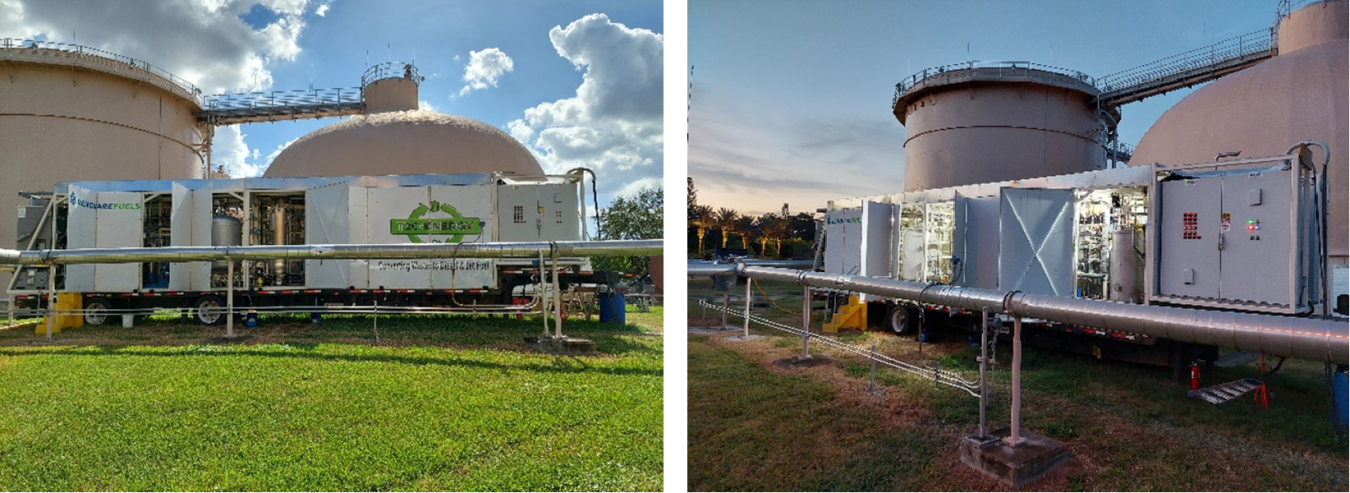The interactive Integrated Biorefineries Map highlights competitively awarded bioenergy projects co-funded by the U.S. Department of Energy Bioenergy Technologies Office (BETO) Systems Development and Integration program.
Listed projects date back to Fiscal Year 2007 and span a wide range of technology readiness levels (TRL). Instructions for map use and more information on integrated biorefineries and their impact on the bioenergy industry are below the map.
How to Use the Integrated Biorefineries Map
By default, both active and inactive integrated biorefinery projects are displayed, but you may adjust the map and table filters to control the information displayed. You can zoom in and out of the map several ways.
- Double-click on the Map
- Use the +/- buttons on the upper left
- Zoom in by scrolling the mouse wheel away from you. To zoom out, scroll the wheel away toward you.
About SDI Integrated Biorefinery Projects
Projects within the SDI portfolio work to apply lessons learned during prior-scale work to ultimately reduce risk during scale-up and to move these technologies towards commercialization. Scale-up of any bioenergy technology requires significant funding in research and development to:
- Reduce costs
- Improve performance
- Achieve competitiveness with fossil fuels.

The T2C Energy, LLC pilot-scale unit being run at the South Cross Bayou Advanced Water Reclamation Facility in Pinellas County Florida. The unit demonstrated T2C’s TRIFTS technology to convert biogas from wastewater sludge and fats, oils, and greases (FOG) being digested onsite into a renewable diesel fuel. Photos courtesy of T2C Energy, LLC
By working across a wide range of TRLs, these SDI projects help through early modeling and analysis work to inform technology development efforts. In addition, the projects work to optimize individual process steps within the technology pathways to ultimately enable fully integrated processes and continuous operation in pilot and demonstration scale facilities.
Enhancing the U.S. Bioenergy Industry through Integrated Biorefineries
A crucial step in strengthening the U.S. bioenergy industry is to enable higher scale, first-of-a-kind integrated biorefineries that can efficiently convert a broad range of biomass feedstocks into commercially viable biofuels and bioproducts.
Integrated biorefineries resemble conventional refineries in that they produce a range of products to optimize both the use of feedstocks and production economics.
Integrated biorefineries employ combinations of feedstock and conversion technologies to create a variety of co-products and biofuels. Co-products can include:
- Commodity chemicals
- Polymers and monomers
- Food additives and supplements
- Proteins.
Common renewable feedstocks utilized in integrated biorefineries include the following:
- Energy crops, such as switchgrass, miscanthus, willow, and poplar
- Agricultural, forest, and industrial residues, such as bagasse, stover, straws, forest thinnings, sawdust, and paper mill waste
- Other sources such as municipal solid waste, biogas, waste CO2, wastewater sludge, or food processing wastes
- Algae and other microorganisms.
Federal support for first-of-a-kind integrated biorefineries can help validate costs and performance, thus reducing the technical and financial risks associated with deploying new technology for the U.S. bioeconomy.
Engineering-Scale System Testing for the SDI Portfolio
BETO also funds the development of first-of-a-kind engineering-scale systems that will be tested in relevant environments. Funded projects will typically be integrated technology verifications, where a system or component is tested at the engineering scale for the first time in an experimental prototype.
Realistically after testing, it’s expected that additional applied research refinements will be needed. Those refinements will be fed back into BETO research and development (R&D) following a successful development phase.
Verifying these technologies at smaller, partially integrated scales is essential to reduce risk and technology uncertainty and will enable applied R&D programs to reduce costs and improve performance in feedstock and conversion processes.
Support of integrated testing and pilot-scale work will continue through the SDI program. BETO plans to leverage previous funding in integrated process development, pilot-scale, and systems research capabilities at universities, as well as at the U.S. Department of Energy's national laboratories. These national laboratories include:
- National Laboratory of the Rockies' Integrated Biorefinery Research Facility and Thermal and Catalytic Process Development Unit
- Idaho National Laboratory's Biomass Feedstock National User Facility
- Lawrence Berkeley National Laboratory's Advanced Biofuels Process Development Unit
- Pacific Northwest National Laboratory's Hydrothermal Liquefaction Skid.
For more information on BETO’s integrated biorefinery projects, see the Interactive Map above.

